[reprinted from Great Jones Street, Winter 2017]

Dylan knows the creatures are back. He senses them in the electrical hum following Cassandra’s voicemail. Cassandra called to wish Dylan a Happy Birthday and to break up with him. She is leaving on the last ferry to Port Angeles. This lends the electrical hum a sinister tone. The creatures inhabit such places: vacant lots and buildings, awkward pauses in conversation, the dead weeks between seasons – places where things (weather, friendships, hearts) break. That’s why Dylan calls them Splitters.
The creatures have been nesting on Wren Island ever since Dylan quit school to deal dope full time. And on Wren Island business is good. But Dylan must sell his final few bags before the last ferry leaves and the schedules change and the ferry starts coming once every two days as opposed to every three hours. Like the Island itself, Dylan earns his yearly keep in a frantic eighteen-week scramble between spring and summer, after which Wren Island reverts to being a sleepy rock in the Pacific. Timing is everything. Everyone knows that. Including the Splitters.
Cursing, Dylan slams down the receiver, jams a half-dozen baggies of weed into his jacket and begins his mad sprint for the harbor.
Happy birthday Dylan. The Splitters have come for you.
*
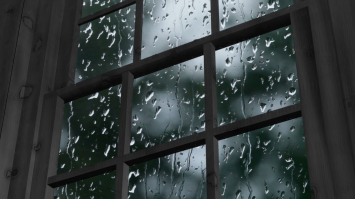
Dylan first met the Splitters in high school. His guidance counselor was explaining that school “was not an appropriate setting” for Dylan. Dylan remembers the shadowed calm of Mr. Sutton’s office with its battered sofa and framed Beatles poster on the wall above the desk. John Lennon’s image undulated in the shadows of rain crawling down the window outside as Sutton read aloud the details of the discharge paperwork. Dylan barely heard him. Truth be told, he was a little stoned.
“So Dylan you’re emancipated from your family so when we file this paperwork you’ll effectively be an adult. Do you have a plan to support yourself?”
Time seemed to slow down for Dylan when he got stoned, the contours of the present moment broadening into a great house with many undiscovered rooms. Dylan had recently discovered the fascination of exploring those rooms, although the act of doing so drew his attention away from whatever was happening in front of him at the time.
… emancipated … family … file this paperwork and become an adult … Dylan caught the edges of Sutton’s rap and was dimly aware that a question had been posed. Support yourself?
“Yeah I’ve been doing that for a while now,” he muttered.
He noticed something stirring in one of the shadowed corners he was exploring. He blinked and tried to continue tracking the movement …
“I know.” Sutton’s mouth was a tight line amidst his beard. His pony tail swished as he turned to pick up the paperwork and hand it across to Dylan. Dylan’s attention flashed back to the shadowed corner in his mind. The moment had expanded to become a long windowless chamber with the ruins of a colored fresco adorning its walls. A four-poster bed, its sheets rotting and its ticking exposed like the decaying tongues of bundled corpses, filled the middle of the room. Dylan gazed past it to a bay window enclosed by dark draperies. He could just make out the shape of a narrow, lobster-like claw the length of a baseball bat shifting in the darkness. He blinked. A square of light glimmered on the black enamel of the claw as it …
Dylan snapped out of it. Signed the papers.
“Wanna buy a bag?” he asked casually.
Sutton opened a drawer of his desk and produced some cash. Dylan passed over a baggie of weed, shook hands and walked out of school for the last time, reflecting on his final lesson. That time was a house. With termites.
*
He cuts across the playground of the abandoned school. The oak front doors remain padlocked with a rusting chain dating from the Clinton Administration. He notes that Mr. Sutton’s office window has become splintered. As Dylan hurtles past the jungle gym he spies the dim outlines of a footprint in the sand – a triangular foot edged with hair-line impressions like a bug’s tactile whiskers. His sneaker obliterates it as he sprints onward.
Dylan skids to a stop outside the art gallery Cassandra manages in exchange for lodging upstairs. He peers through the old-timey shop window at Kermit the proprietor resting on a piano bench. A half-dozen paintings line the base of the walls awaiting storage. Dylan forces his breath under control then steps inside.
“Cassie’s gone, Dylan. Packed up and left.” Kermit waggles his cane at the ladder. “Take a peek if you like.”
 Dylan scrambles up to the open trap door and pokes his head through to the loft where they spent so many nights. The mattress is stripped bare. The dresser drawers are pulled open, a ripped t-shirt dangling from the top one. (Dylan recognizes it as her bedtime tie-dye, the one Cassandra kept threatening to throw away but never did.) A discolored square hovers where Cassandra’s Led Zeppelin poster hung – the classic print with the hermit holding the lantern up to the lyrics to “Stairway to Heaven”. There is no envelope left behind for him, no folded square of paper bearing wistful suggestions of a second chance. And, worst of all, no Cassandra.
Dylan scrambles up to the open trap door and pokes his head through to the loft where they spent so many nights. The mattress is stripped bare. The dresser drawers are pulled open, a ripped t-shirt dangling from the top one. (Dylan recognizes it as her bedtime tie-dye, the one Cassandra kept threatening to throw away but never did.) A discolored square hovers where Cassandra’s Led Zeppelin poster hung – the classic print with the hermit holding the lantern up to the lyrics to “Stairway to Heaven”. There is no envelope left behind for him, no folded square of paper bearing wistful suggestions of a second chance. And, worst of all, no Cassandra.
He drops back to the gallery floor. “How long has she been -?”
“About half an hour,” Kermit wipes his flabby face with a handkerchief. He has already switched off the air conditioning for the year. “Never thought in a million years I’d ever see her leave. She loved this island.”
And me too, Dylan thinks, smarting at the past tense. He is about to leave when Kermit clears his throat.
Dylan knows that sound, recognizes the furtive way the gallery owner slips a wad of twenties from his pocket. Dylan sighs and lays a baggie on the counter by the piano stool. Kermit’s fat fingers flash out to snatch it up.
“Might try Adele.” Kermit moves ponderously toward the last few paintings to be crated. “Cassandra had some books of hers she needed to return … Over at the Breadloaf Cafe.”
*
The streets are empty as Dylan jogs Main toward the Breadloaf. The small cafe, owned by a Wren Island native, is one of the few businesses that remains open year-round. Dylan anticipates its welcoming light, its warm bakery and coffee bean smells.
He passes row upon row of closed businesses, their corrugated metal shutters gaping like the eyes of blind men. Seasonal vertigo assails him. The mouths of alleys distend into weird diagonals and the air crackles with the same electrical hum that followed Cassandra’s voicemail. In the stillness before the last ferry of summer, the Splitters are beginning to stir.
The sign swings on its cross-bar over the empty sidewalk: BREADLOAF CAFE. Dylan thumps up the steps to the entrance, shoulders his way inside and hears the bell chime as it closes against its trip-bar. The place, resembling a museum exhibit of hippie culture, is perfectly still, its frumpy, über-casual dining area accented in wood and earth tones. Steam rises from a coffee pot on a hot-plate. A radio plays softly by the cash register. Crosby, Stills and Nash: “Helplessly Hoping.”
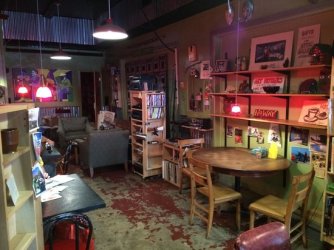 A stack of books sits on an empty table. Dylan approaches and read the titles: The Tao of Pooh, The Spiral Dance, A Woman’s Guide to Backyard Farming. There is also a scrawled note anchored down with a spoon.
A stack of books sits on an empty table. Dylan approaches and read the titles: The Tao of Pooh, The Spiral Dance, A Woman’s Guide to Backyard Farming. There is also a scrawled note anchored down with a spoon.
Adele: thanks for the loan. I’m off to new adventures. Wish me luck. Namaste, C.
His breath leaves him in a plosive hush and he steadies himself. The bell chimes as the door closes against its trip bar.
“Hello, Dylan.” Adele sweeps past him, all raven hair and silver jewelry. Her gypsy ear-rings jangle as she smiles down at the books. “How thoughtful of Cassandra …”
“I’m trying to find her.”
Adele hesitates behind a logjam of hesitant sympathy. “If she’s not already at the ferry she might have stopped to see Tom and June. They’ve got a place at the Horizon Towers now.”
Dylan shudders at the mention of the island’s only apartment complex.
“Dylan … got any weed?”
Dylan rummages in his jacket pocket for a bag. As he reaches one out to Adele, he notices a mural someone has painted since his last visit.
“Amazing, isn’t it?” Adele steps behind the counter. “Billy’s son Connor did it.”
As Adele opens the register, Dylan examines the bizarre painting. Connor has created the illusion of an extra table in the cafe using forced perspective, going so far as to mimic the exact type of cutlery and place-settings Adele uses. The man-sized insect even sits in the same kind of round-bottom, wire-backed chair as those scattered around the main room. Its antennae dangle as it hunches forward over a cup of steaming coffee, light gleaming off the black enamel of its carapace.
“Strange, I know.” Adele holds out a wad of bills. “But kind of appropriate. In a way.” She chuckles.
The insect glares back at Dylan, its flat black eyes utterly devoid of human emotion. Dylan accepts Adele’s money and flees into the street.
*
![CIMG0163[1]](https://jamiescribbles.files.wordpress.com/2018/09/cimg01631.jpg?w=415&h=311) Dylan spent the darkest years of his life at the Horizon Towers.
Dylan spent the darkest years of his life at the Horizon Towers.
Bewitched by his investigations of the edges and corners of time, he became incapable of finishing conversations – or even articulating complete thoughts. Because seconds were vast things now – not just great houses filled with shadowed corridors but sprawling cities packed with narrow, labyrinthine streets. Dylan persevered in exploring them, convinced there was merit in this odyssey. Lost seconds became lost minutes became lost opportunities, the disappearance of which fractured Dylan’s ties to everyone around him. And it wasn’t just the dope (although the dope made it easier). It had more to do with the architecture of time surrounding Wren Island, something that made losing track of the minutes and hours so easy.
The Splitters inhabit such spaces: vacant lots, awkward pauses, the dead seasons of a life outside the mainstream of human existence. Dylan’s became a repetitious round of smoking, scoring and selling weed. He filled the time between with sleep and TV. His corner apartment on the ground floor of the Horizon Towers had a window that gave out onto a back alley. He spent many nights studying the play of fluorescent light on the brick wall opposite his kitchen, trying to remember what he had been thinking just seconds before …
They infested his apartment.
*
It isn’t until June opens the door to his knock that Dylan recognizes his old place. The same corridors he walked daily are unrecognizable to him because he is more or less sober these days. Dylan catches a whiff of chamomile tea.
“Cassandra here?” His tone is breathless, impatient.
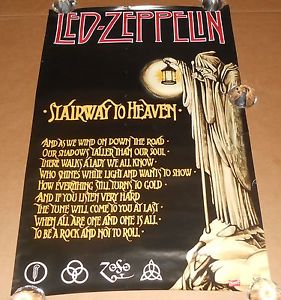 “You JUST missed her.” June steps back to admit him, bare feet swishing below the hem of her Grannie dress. Dylan limps indoors. The living room is decorated in hippie chic: a threadbare sofa, a wooden cable spool for a coffee table, a turntable on the floor beside milk crates packed with records. Tacked on the wall above them: Cassandra’s Led Zep poster.
“You JUST missed her.” June steps back to admit him, bare feet swishing below the hem of her Grannie dress. Dylan limps indoors. The living room is decorated in hippie chic: a threadbare sofa, a wooden cable spool for a coffee table, a turntable on the floor beside milk crates packed with records. Tacked on the wall above them: Cassandra’s Led Zep poster.
“She left that for us.” June pads into the kitchen. “Tea?”
“Water, thanks.” Dylan closes his eyes and leans against the wall suddenly exhausted.
“Hey, got any weed? Oh – and. Tom wants a bag too, so …”
Dylan hands across two baggies and takes June’s money. Tea cup in hand she moves quietly through the apartment, switching off lights only the glow of a single reading lamp remains. She sinks into a patched leather recliner and begins rolling a joint.
“Island’s emptying out.” She sighs. “Always nice after a hot summer of tourists. But it’s a sad time, too …”
A sad time. Like the period of Dylan’s incarceration in this apartment. He knows Tom isn’t around but wants to ask. Because of the movement he detects a stirring in the shadows. The bathroom door begins moving slowly …
“Well.” June rolls the finished joint over the flame of a Bic lighter to dry the seam. “Another summer gone. Another endless autumn begins.”
Endless autumn. YES … Dylan’s world in the Horizon Towers languished in such an autumn, as though the building were a prison constructed in a null spot in time. Below a vault of grey clouds that never moved, never changed, never loosed their payload of rain, the Splitters crowded every spare inch of Dylan’s apartment, filling the spaces that should have been occupied by human energy, real relationships. Nature abhors a vacuum. But so does the Unnatural. A warren of Splitters emits an electrical hum when it clusters together, a vibrating tone that shivers and undermines connection. Dylan remembers trembling at the sound of that tone (“… leave a message at the sound of the …”), eyes clutched against the horror of actually seeing the large mantis-like forms crowding around, swaying ever closer, threatening to touch him …
” … will probably score a job on the docks. He needs to get off welfare.” June’s voice is pinched around in-held smoke. She extends the burning joint to Dylan, who waves it away. Already he can feel the weight of a contact high pressing against his mind. He glances toward the bathroom door. It is just my imagination … But no. The door is opening further.
“Oh! I forgot to get you your water …”
June sticks the joint between her lips like a cigarette and moves back into the kitchen. The boarding siren of the last ferry shrieks as she shakes a plastic tumbler empty of soda and bends over the sink. Dylan sees a shadow shift across the linoleum of the bathroom floor. Grits his teeth and …
When June emerges with his water, Dylan is gone.
She makes a frustrated noise. Then, noticing the bathroom door has drifted open, she closes it before settling down to smoke her joint in peace.
*
The hum of the Splitters has risen to a deafening roar. Dylan sprints full-tilt toward the harbor through its rising din. His skin crawls with that electric blend of panic unique to those who sense approaching danger but who know the futility of raising the alarm. Giant time-devouring bugs are infesting the island. Dylan shudders to imagine how such news would be greeted.
I wish Jerry was still alive, he thinks.
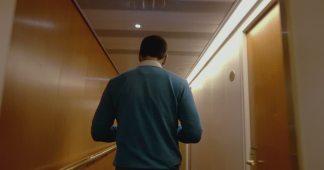 Jerry. Squat and compact. Hard-voiced and forthright to the point of routinely alienating everyone around him. Yet fiercely loyal and surprisingly sensitive. The pulp sci-fi writer had moved to Wren Island to retire and was diagnosed with terminal cancer three months later. He was Dylan’s neighbor in the Horizon Towers. A chance encounter in the hallway was the start of Dylan’s emergence from his shell. Jerry extended an invitation to come play chess, which became a nightly ritual. When the writer fell sick, Dylan took to visiting him in the hospital.
Jerry. Squat and compact. Hard-voiced and forthright to the point of routinely alienating everyone around him. Yet fiercely loyal and surprisingly sensitive. The pulp sci-fi writer had moved to Wren Island to retire and was diagnosed with terminal cancer three months later. He was Dylan’s neighbor in the Horizon Towers. A chance encounter in the hallway was the start of Dylan’s emergence from his shell. Jerry extended an invitation to come play chess, which became a nightly ritual. When the writer fell sick, Dylan took to visiting him in the hospital.
“Goddamned drugs.” Jerry’s face was white against the wine-colored pillow case. “Can’t feel anything except my stomach and that feels like shit …”
Dylan understood. At the depths of his immersion, when the Splitter nest in his apartment had grown into an intricate hive of shell-like passages that curled away into nothingness and all trace of furniture and fixtures was lost beneath the sediment the creatures exuded, Dylan himself occasionally became immobilized beneath a drift of the stuff. It prompted the same kind of nausea. He might have become buried alive in the time sink, but he had the dying man to thank for his deliverance.
“Funny thing … can’t focus enough to write cause of this morphine. But I got a great idea for a story. Inspired by this damned island. Ever notice how time goes all funny and sideways when the weather gets rainy?”
Dylan hunched forward.
“Ever notice? The fashions, the music on this island … all stuck in the Seventies. As if time stopped there. It’s as if some disease were at work, stunting progress …”
The wind kicked the bare branches of the trees outside the hospital room window into a tangled fury beneath the steel grey sky.

“Imagine time as an organism.” Jerry laughed weakly. “Like a complex invertebrate. Perhaps a primitive mollusk of some kind. An organism that moves through the routines of its existence – waking, sleeping, eating, eliminating. Subject to the effects of stress, environment, illness. Now imagine a pathogen – a virus. Infecting time. A kind of temporal parasite …”
Or a bug, thought Dylan.
“Infecting. Undermining the health … of the …”
Jerry’s voice faded as the combined effects of the painkillers took hold and he lapsed into unconsciousness.
“Is he asleep?”
Dylan turned.
Standing in the doorway – blonde, willowy – was the most beautiful woman Dylan had ever seen. He felt an ache just meeting her gaze. She was pure-bred hippie of the finest stock – an unlikely friend of Jerry’s. How come I’ve never noticed her before? Dylan smiled uncertainly …
Cassandra.
*
The ferry siren howls again and Dylan wonders why no else has noticed the rising tone of the electrical hum. Perhaps they assume it is a by-product of the ferry’s boarding siren. It is this way every year. As the town empties, the hum grows and a deep silence settles over Wren Island as change slows to a trickle and everything … stops. Again Dylan thinks of Jerry in his hospital bed elucidating ideas for the story he would never write.
The pier lies just ahead. The barrier to the boarding station has been lowered and the ticket kiosk is closed. Herbert stands counting money behind the window. Dylan skids to a stop and bangs on the glass.
“Full.” Herbert waves a stack of bills without looking up.
“Herbert!”
The ticket master looks up and blinks behind his little round glasses. He knows Dylan – has scored dope from him before – and so accepts the proffered bag as bribe enough to radio the ferry to wait a minute longer. And a minute, Dylan knows, is all he will need.
He turns toward the boarding ramp.
A mountain of dark clouds is massing over the harbor. In the weather’s colorless fury Dylan spots a lone figure standing on the top deck staring down at him, blonde hair blown into a cloud around her face by the approaching storm.
Dylan knows exactly what he will do. He will sprint to the edge of the boarding ramp and drop his last baggie into the drink. He will leap onboard the ferry then press through the crowd of bodies standing topside until he reaches Cassandra and fold her into his arms, whispering apologies for whatever it is he had done. Then he will stand beside her and watch Wren Island recede as autumn comes and the Splitters descend and he and Cassandra escape to begin a new life together on the mainland.
He takes the first step.
The contours of the moment expand, broadening into a great house with many undiscovered rooms.
Dylan’s skin horripilates at the familiar sensation. Cassandra recedes until she is like the figure of a woman spied through the wrong end of a telescope: far, far away. Dylan stumbles. He must adjust his vision or risk falling. He does so and abruptly finds himself lost within a vast structure of dark chambers and labyrinthine corridors. He attempts to keep hold of the seconds he needs to board the ferry but these too become lost. And before long so does Dylan.
He plummets into the descending architecture of shadows.
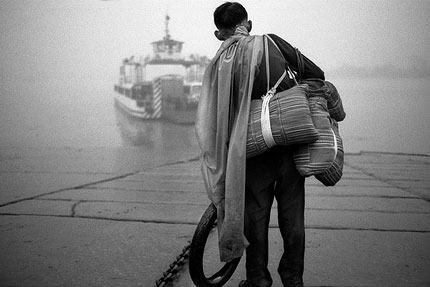
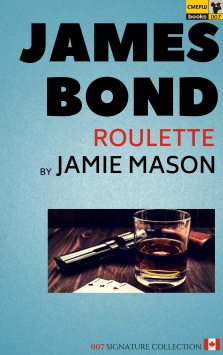
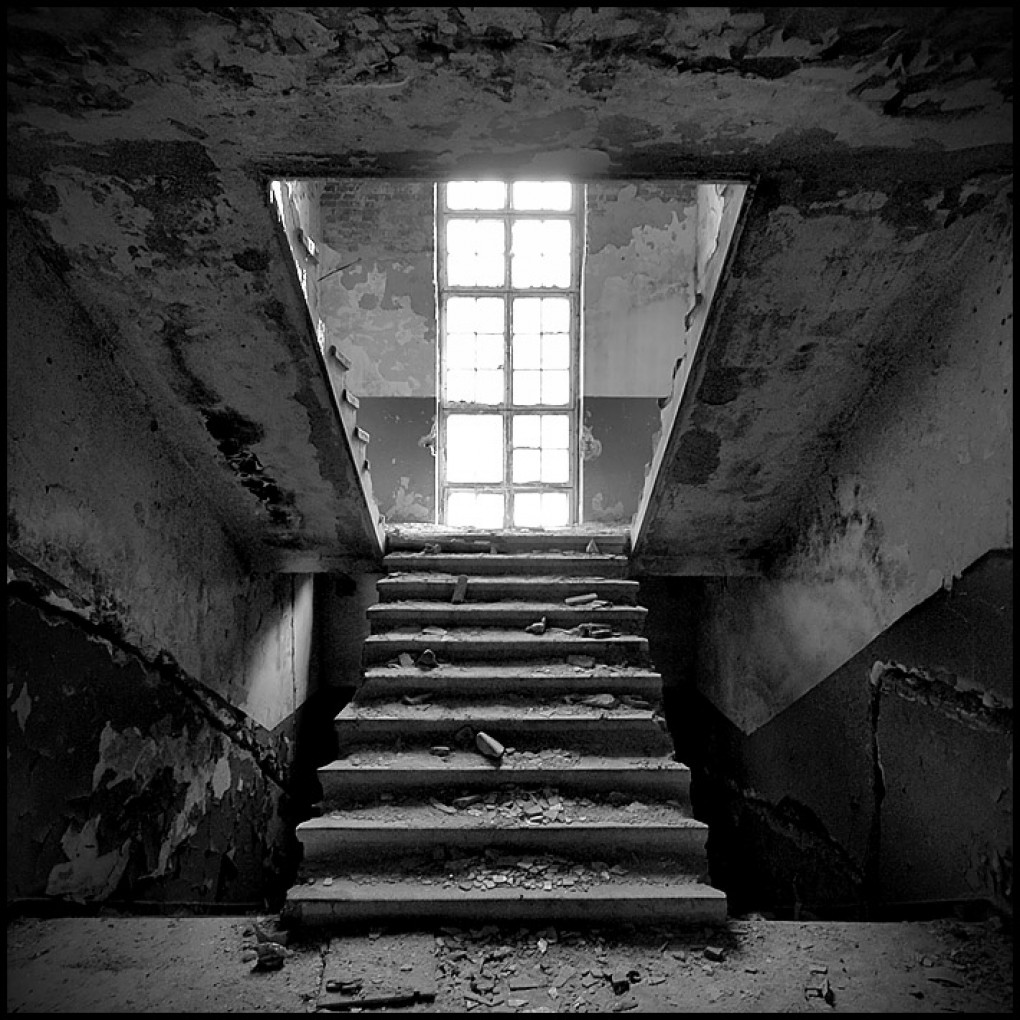
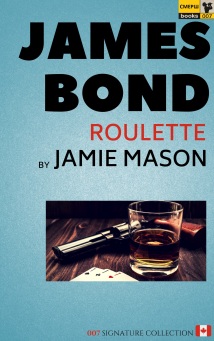 Stepping out of the Lockheed and down to the runway, Bond was enveloped in the vast, cold, pine-scented wilderness of Canada. It was, he reflected, walking toward the man standing in the light of an open hangar, a land in which to lose oneself. To disappear entirely, dwarfed by geography and distance. He marveled that such a peaceful dominion should be an arena for such bloodshed.
Stepping out of the Lockheed and down to the runway, Bond was enveloped in the vast, cold, pine-scented wilderness of Canada. It was, he reflected, walking toward the man standing in the light of an open hangar, a land in which to lose oneself. To disappear entirely, dwarfed by geography and distance. He marveled that such a peaceful dominion should be an arena for such bloodshed.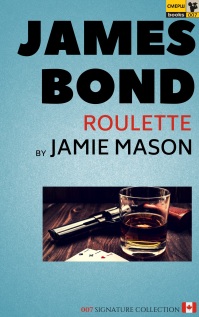
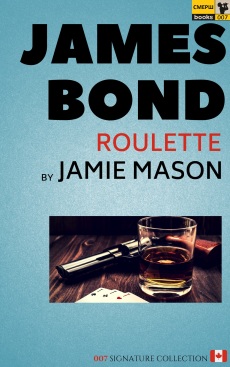 I wanted to answer some of the questions I have been getting about Roulette, the James Bond novel I will be releasing in November.
I wanted to answer some of the questions I have been getting about Roulette, the James Bond novel I will be releasing in November.

 Dylan scrambles up to the open trap door and pokes his head through to the loft where they spent so many nights. The mattress is stripped bare. The dresser drawers are pulled open, a ripped t-shirt dangling from the top one. (Dylan recognizes it as her bedtime tie-dye, the one Cassandra kept threatening to throw away but never did.) A discolored square hovers where Cassandra’s Led Zeppelin poster hung – the classic print with the hermit holding the lantern up to the lyrics to “Stairway to Heaven”. There is no envelope left behind for him, no folded square of paper bearing wistful suggestions of a second chance. And, worst of all, no Cassandra.
Dylan scrambles up to the open trap door and pokes his head through to the loft where they spent so many nights. The mattress is stripped bare. The dresser drawers are pulled open, a ripped t-shirt dangling from the top one. (Dylan recognizes it as her bedtime tie-dye, the one Cassandra kept threatening to throw away but never did.) A discolored square hovers where Cassandra’s Led Zeppelin poster hung – the classic print with the hermit holding the lantern up to the lyrics to “Stairway to Heaven”. There is no envelope left behind for him, no folded square of paper bearing wistful suggestions of a second chance. And, worst of all, no Cassandra. A stack of books sits on an empty table. Dylan approaches and read the titles: The Tao of Pooh, The Spiral Dance, A Woman’s Guide to Backyard Farming. There is also a scrawled note anchored down with a spoon.
A stack of books sits on an empty table. Dylan approaches and read the titles: The Tao of Pooh, The Spiral Dance, A Woman’s Guide to Backyard Farming. There is also a scrawled note anchored down with a spoon.![CIMG0163[1]](https://jamiescribbles.files.wordpress.com/2018/09/cimg01631.jpg?w=415&h=311) Dylan spent the darkest years of his life at the Horizon Towers.
Dylan spent the darkest years of his life at the Horizon Towers. “You JUST missed her.” June steps back to admit him, bare feet swishing below the hem of her Grannie dress. Dylan limps indoors. The living room is decorated in hippie chic: a threadbare sofa, a wooden cable spool for a coffee table, a turntable on the floor beside milk crates packed with records. Tacked on the wall above them: Cassandra’s Led Zep poster.
“You JUST missed her.” June steps back to admit him, bare feet swishing below the hem of her Grannie dress. Dylan limps indoors. The living room is decorated in hippie chic: a threadbare sofa, a wooden cable spool for a coffee table, a turntable on the floor beside milk crates packed with records. Tacked on the wall above them: Cassandra’s Led Zep poster. Jerry. Squat and compact. Hard-voiced and forthright to the point of routinely alienating everyone around him. Yet fiercely loyal and surprisingly sensitive. The pulp sci-fi writer had moved to Wren Island to retire and was diagnosed with terminal cancer three months later. He was Dylan’s neighbor in the Horizon Towers. A chance encounter in the hallway was the start of Dylan’s emergence from his shell. Jerry extended an invitation to come play chess, which became a nightly ritual. When the writer fell sick, Dylan took to visiting him in the hospital.
Jerry. Squat and compact. Hard-voiced and forthright to the point of routinely alienating everyone around him. Yet fiercely loyal and surprisingly sensitive. The pulp sci-fi writer had moved to Wren Island to retire and was diagnosed with terminal cancer three months later. He was Dylan’s neighbor in the Horizon Towers. A chance encounter in the hallway was the start of Dylan’s emergence from his shell. Jerry extended an invitation to come play chess, which became a nightly ritual. When the writer fell sick, Dylan took to visiting him in the hospital.


![Boy-and-lamppost[1]](https://jamiescribbles.files.wordpress.com/2017/08/boy-and-lamppost1.jpg?w=640)
![_49017757_home_getty464[1]](https://jamiescribbles.files.wordpress.com/2017/08/49017757_home_getty4641.jpg?w=640)
![clouds_outer_space_dark_stars__4096x2304_artwallpaperhi.com[1]](https://jamiescribbles.files.wordpress.com/2017/05/clouds_outer_space_dark_stars__4096x2304_artwallpaperhi-com1.jpg?w=640)
![5113jbvzJpL[1]](https://jamiescribbles.files.wordpress.com/2017/03/5113jbvzjpl1.jpg?w=199&h=299) Like most crazy ideas, this one started over a conversation that involved alcohol.
Like most crazy ideas, this one started over a conversation that involved alcohol. ![6561757-M[1]](https://jamiescribbles.files.wordpress.com/2017/03/6561757-m1.jpg?w=640) Young through recording and releasing of
Young through recording and releasing of ![51bs537ve6L.SX316[1]](https://jamiescribbles.files.wordpress.com/2017/03/51bs537ve6l-sx3161.jpg?w=168&h=283) cause. We were responding to events – something artists often feel compelled to do.
cause. We were responding to events – something artists often feel compelled to do.![61+un+dEWZL._SY346_[1]](https://jamiescribbles.files.wordpress.com/2017/03/61undewzl-_sy346_1.jpg?w=640) Meanwhile, I learned that The Executioner enjoys a robust afterlife in e-book. And it occurred to me, staring at an early edition of
Meanwhile, I learned that The Executioner enjoys a robust afterlife in e-book. And it occurred to me, staring at an early edition of 